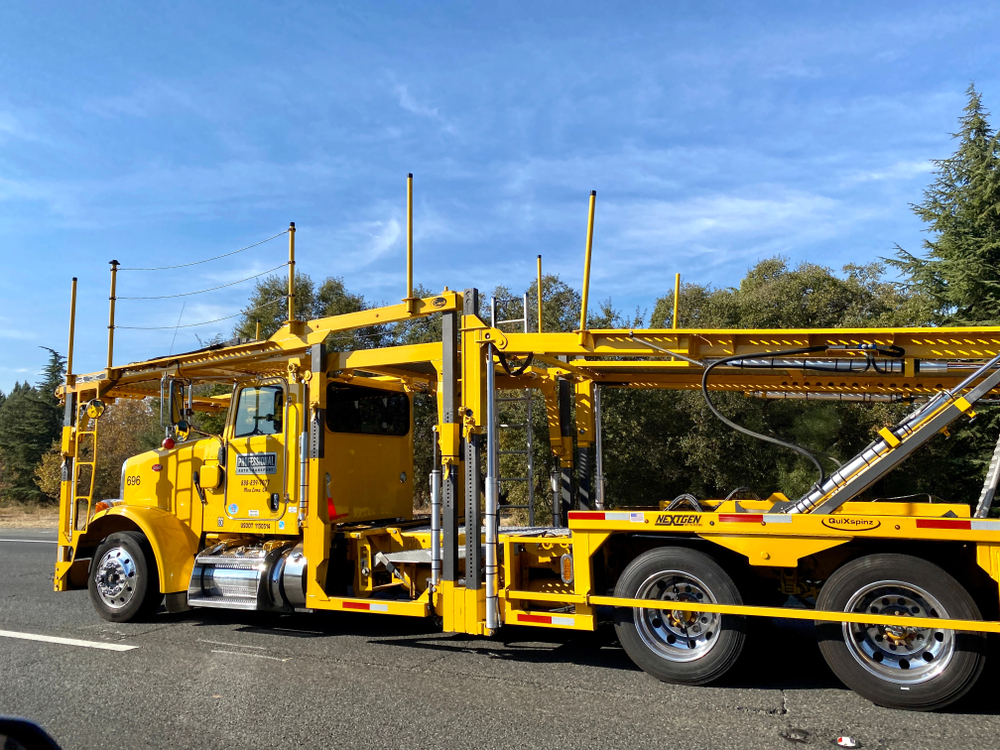For companies that need to ship cars across the country, there are several services they can utilize. The two most common methods of car transport involve either open-air shipping or enclosed trailer transport.
Open Air Car Shipping
Open-Air Shipping is the more cost effective option as it involves placing up to 8 vehicles on an auto carrier that is then hauled by a truck driver. This method typically takes longer than enclosed shipping due to the number of stops required, however, it is often chosen for shorter distances when time is not a major factor.
Enclosed Auto Transport
Enclosed Trailer Transport utilizes fully enclosed trailers with a capacity of 6-8 cars per trip, depending on size and configuration says A-1 Auto Transport. This service offers extra security and protection from elements like rain, snow and dust for classic cars or vehicles carrying valuable cargo such as medical supplies or antiques. It also helps reduces delivery times since fewer stops are needed compared with open air carriers due to their larger capacity and faster transit speed (up to 70MPH). Enclosed trailer shipment can be significantly more expensive than open air shipment so many companies opt for this if time constraints are present but budget isn’t an issue.
In addition to traditional road transportation methods, some cab companies have begun taking advantage of rail freight services in order to reduce costs while still providing reliable service times that meet their customers needs. By utilizing railway networks around the country these companies can move goods quickly with minimal environmental impact when compared with overlanding shipments using trucks. Companies who choose this method must ensure that their activities adhere strictly to regulations set by both Federal Rail Administration (FRA) in the United States as well as other regional governing bodies applicable in each area travelling through given route(s).
No matter which route you decide on for your auto shipping needs, you should always make sure that communications between yourself/your company and your chosen mover remain connected throughout the process both before pickup and post delivery in order gain insight into any potential delays along way – ultimately helping ensure customers receive quality service within stipulated timelines at best rates possible!
What will it cost me?
The cost of shipping a car across the country will vary depending on its size, make and model, as well as the distance it needs to travel. It is estimated that the average cost for a coast-to-coast delivery of a standard sedan vehicle (such as Toyota Corolla) is around $900-$1,500. On the other hand, larger vehicles like SUVs and pickup trucks may require up to $2,000-$3,000 worth of shipping fees.
The factors that contribute to these costs include:
- Vehicle size – Larger cars tend to be more expensive;
- Distance – Longer distances result in higher fees;
- Delivery time – Express or rush deliveries usually come with added charges;
- Location – Different areas have varying rates for shipping services;
- Haulers demand – Local companies may offer competitive pricing but national haulers are likely to charge more due to their range and reachability .
Additionally, some companies provide additional insurance coverage which can increase your quote significantly by 10-20%. Furthermore , you should also consider paying fuel surcharges which can bring your total even higher. All in all , expect anywhere from $750 – 4500 for auto transport services depending on all of these different factors!

The Process
Shipping a car across the country involves several relatively straightforward steps.
First of all, you’ll need to decide whether you want to drive or ship the car yourself. If you choose to drive, plan your route and make sure your vehicle is in proper working order prior to departure.
If you choose to ship through an auto carrier, research companies that offer this service and obtain quotes from each one. Make sure they are properly licensed and insured before choosing a company. You should also check reviews online for reliability purposes and inquire about any additional fees associated with their services (for example, preparation fees). It’s also important that you provide accurate information about your specific vehicle so the company can give an accurate quote as well as ensure sufficient clearance for loading onto the transport truck if necessary. Ask about insurance coverage for any damage incurred during transportation too – some companies offer supplemental coverage for an additional fee.
Once all arrangements have been made, prepare your vehicle by removing all loose or valuable items inside it – don’t forget personal documents like a registration or title! Ensure all fluids such as gas tanks are below ¼ full before delivery so there won’t be excess weight added on later when loading onto the transporter’s truck (and remember that it’s against federal law to ship hazardous materials) . Also clean up exterior surfaces of dirt & debris since this might affect pricing based on condition assessment upon delivery – which is typically conducted upon arrival at destination state/city hub(s).